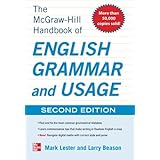preterite (Also preterites) : Related Words Words similar in meaning to preterite
- preterit«
- simple past«
- preterite«
- tense«
- präteritum«
- past tense«
- preteritive«
- typical conjugation«
- past«
- verb«
- preterition«
- perfekt«
- preterite-present verb«
- action«
- habitual past action«
- passato remoto«
- grammatical«
- perfective aspect«
- e hat geregnet«
- past action«
- passato prossimo«
- compound past«
- distinction«
- plain form«
- modal verb«
- strong verb«
- aorist«
- remote past«
- english verb«
- oral language«
- main verb«
- meaning«
- infinitive«
- event«
- perfect«
- oat«
- ending«
- zise polițistul«
- unsuitable borrowing«
- unstressed stem«
- traditional spanish terminology«
- tocmai îl auzii«
- tenho corrido«
- specific tense«
- rained/was«
- praetereō«
- portuguese preterite«
- perfectul compus«
- perfective situation«
- perdetti«
- perdei«
- past tense pretéritos«
- original preterite scēaf«
- older grammar book«
- mangiavo«
- mangiai«
- latin praeteritum«
- jugar>jugué«
- j'eus«
- imperfetto tense«
- iberian mainland spanish«
- greek grammatical tradition«
- george la radio«
- french simple past«
- ending -etti«
- earlier conjugation«
- e regnete«
- definite start time«
- corría«
- corrí«
- comí todo el día«
- compound verb conjugation«
- close past«
- citirăți«
- buscar>busqué«
- british mainland english«
- almorzar>almorcé«
- aici avem«
- aguar>agüé«
- -și«
- -zar verb«
- -răți«
- -guar verb«
- -gar verb«
- -ettero«
- -car verb«
- wendan«
- spelling modification«
- speech verb«
- spanish preterite«
- simple past verb form«
- pretérito perfeito«
- person preterite form«
- old english strong verb«
- mile yesterday«
- mangiato«
- crimă«
- auxiliary verb sein«
- stressed suffix«
- special conjugation«
- separate verb form«
- pretérito perfeito composto«
- pretérito indefinido«
- person imperfect form«
- paradigmatic status«
- northern speaker«
- north american english speaker«
- interior vowel«
- verbed«
- standard discussion«
- pretérito imperfeito«
- english«
- weak preterite«
- weak conjugation«
- respective sound«
- perfective past«
- current speech«
- imperfekt«
- e regnet«
- simple perfect«
- moldova«
- pronoun subject«
- iterative aspect«
- grammar«
- perduto«
- -ette«
- positive counterpart«
- conjugation system«
- form«
- stem alternation«
- semitic languages«
- past continuous«
- negative clause«
- incomplete action«
- dialogue line«
- successive action«
- -ir verb«
- simplu«
- perfect passive participle«
- perdere«
- informal tone«
- credere«
- corn«
- germanic languages«
- narrative discourse«
- latin terminology«
- können«
- bare infinitive«
- english verb form«
- standard speech«
- conditional form«
- grammatical distinction«
- single verb«
- romanian region«
- strong distinction«
- corri«
- wollen«
- haben«
- compound«
- suppletion«
- neutral form«
- romanian«
- informal writing«
- time reference«
- avoir«
- imperfective aspect«
- -ed«
- usage«
- grammatical aspect«
- weak verb«
- verb tense«
- cinema«
- être«
- regular set«
- portuguese«
- colloquial usage«
- perfective«
- ablaut«
- verb conjugation«
- spanish«
- formal writing«
- accent mark«
- mexican spanish«
- pennsylvania german«
- muntenia«
- akkadian language«
- latin«
- grammatical form«
- perfect form«
- werden«
- u english«
- gata«
- irregular verb«
- story telling«
- south germany«
- modern german«
- oltenia«
- correct form«
- everyday speech«
- parallel development«
- past participle«
- auxiliary verb«
- verb form«
- acute accent«
- todo«
- french«
- brazilian portuguese«
- person singular«
- specific language«
- exception«
- spoken language«
- morning«
- semitic language«
- adverb«
- function«
- past event«
- banat«
- conjugation«
- germanic language«
- result«
- recent event«
- question«
- romance language«
- complex system«
- majority«
- ran«
- suspense«
- old english«
- transylvania«
- us«
- lesser extent«
- canary island«
- official language«
- relevance«
- narration«
- saxon«
- irish«
- viking«
- story«
- abbreviation«
- 3rd person plural«
- 1st person singular«
- 3rd person singular«
Sharpen your Skills with the Masters
 Steal Like an Artist: 10 Things Nobody Told You About Being Creative
Steal Like an Artist: 10 Things Nobody Told You About Being Creative
 McGraw-Hill Handbook of English Grammar and Usage, 2nd Edition
McGraw-Hill Handbook of English Grammar and Usage, 2nd Edition
 The War of Art: Break Through the Blocks and Win Your Inner Creative Battles
The War of Art: Break Through the Blocks and Win Your Inner Creative Battles
 Tools of Titans: The Tactics, Routines, and Habits of Billionaires, Icons, and World-Class Performers
Tools of Titans: The Tactics, Routines, and Habits of Billionaires, Icons, and World-Class Performers